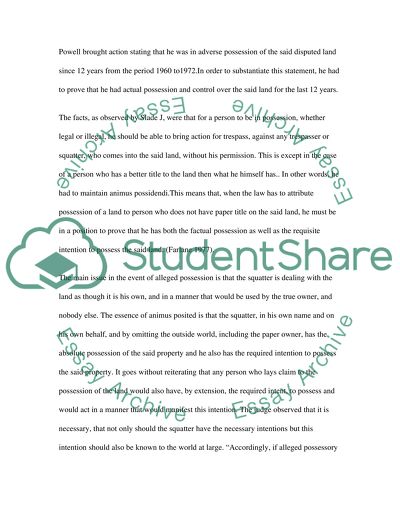Cite this document
(“LAND LAW Essay Example | Topics and Well Written Essays - 3750 words”, n.d.)
Retrieved from https://studentshare.org/miscellaneous/1542635-land-law
Retrieved from https://studentshare.org/miscellaneous/1542635-land-law
(LAND LAW Essay Example | Topics and Well Written Essays - 3750 Words)
https://studentshare.org/miscellaneous/1542635-land-law.
https://studentshare.org/miscellaneous/1542635-land-law.
“LAND LAW Essay Example | Topics and Well Written Essays - 3750 Words”, n.d. https://studentshare.org/miscellaneous/1542635-land-law.


